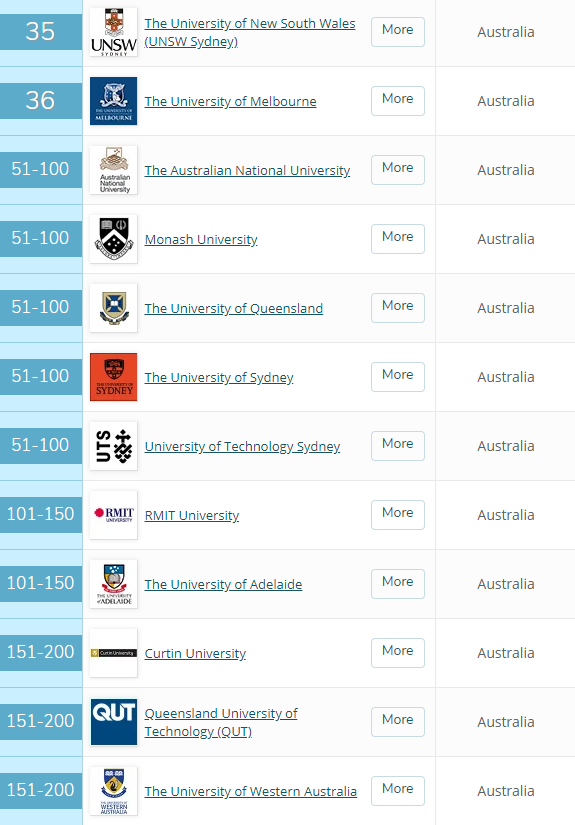Master of Engineering (Electrical Engineering)
Master of Engineering Science (Electrical Engineering)
Master of Engineering Science (Management) (Electrical Engineering)
昆士兰大学在2020 QS世界大学土木与结构学科排名中占第51-100位(如下图)。

![]() OfferEasy/ 留学攻略/ 澳洲电气工程专业/ 昆士兰大学电气工程硕士专业解读
OfferEasy/ 留学攻略/ 澳洲电气工程专业/ 昆士兰大学电气工程硕士专业解读
阅读:8361次添加时间:2020-07-10编辑: journey
